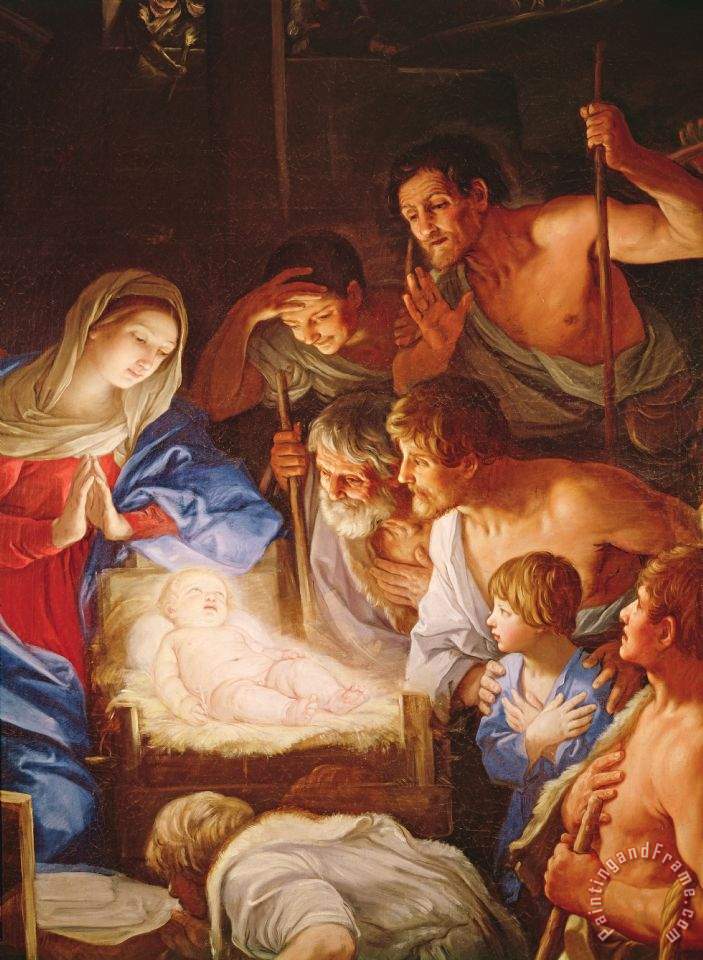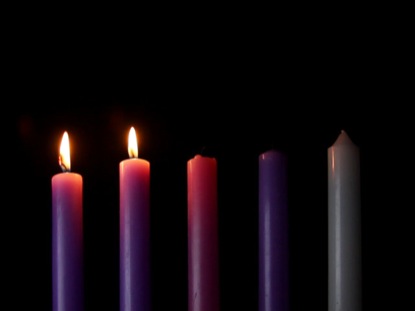Bethlehem Lutheran Church, Lebanon, OR
Circumcision and Name of Jesus + January 1, 2017
Text: Luke 2:21
A blessed Eighth Day of Christmas to you! That’s probably not what you’re expecting to hear on January 1. But it’s true. Today we celebrate the eighth day after Mary gave birth to her firstborn son and laid Him in a manger.
The eighth day is a big deal for every Israelite, including the Son of David. Two momentous things happen on the eighth day—the boys are circumcised and they receive their name.
- Circumcision demonstrates that it is God alone who saves our corrupt race.
Now, circumcision was more than a brutish religious ritual. God commanded that all the descendants of Abraham be circumcised as a mark that they belonged to the promise given to Abraham—“that in his Offspring, all the families of the earth would be blessed.”[1] It was how God marked these sons as bearers of His promise.
Yet for all the circumcised generations, God’s promise was not fulfilled by natural birth.[2] Enter the virgin-born Son of David and Son of the Most High. He was circumcised not to receive God’s promise, but to give it to all the families of the earth. He is the promised Offspring of Abraham, and the One who brings God’s blessing to the sinful sons of earth.
- The Name of Jesus shows how and what the Lord saves us from.
Take that together with what also happened for Him on the eighth day: He received the name given Him by the angel. Jesus. Yeshua or Joshua—“The Lord Saves.” And save He does—“born of woman, born under the Law to redeem those under the Law.”[3]
He was born to intervene in the cycle of birth, getting old, and death. At the end of the year, there’s always a time of reflecting on who we’ve lost this year—great and famous people, police killed in the line of duty, and loved ones who have been taken from us. It all seems routine. We even say that death is natural. Trying to convince ourselves, we come up with platitudes to make it right. But death is not right. It is not natural. It may be normal for the world as we know it, but it is far from God’s desire for humanity.
The Lord saves—to destroy death by His death. Now, because of Jesus, the bars on the grave are unlocked, the fear of death is powerless, and everyone who believes in Him has eternal hope.
Jesus was born under the Law to save us from sin’s curse. This curse runs so deep in our veins that quite often we don’t even think it’s that bad. Like the erosion of morality in our country, we start to buy in and accept it all for normal. Divorce used to be considered sin, but now we believe that it’s just a contract between two people and they can amicably decide to “end things.” Having a child out of wedlock used to be a serious shame, but now we accept “single motherhood” as normal, and let the fathers get away with no more than a child support levy on their paycheck. We are so easily duped by our sinful hearts and the Devil, but God is not.
God’s Law is still just as true and just as holy. His Word shines in and exposes all our works of darkness—our thoughts, our words, and our actions. He enters into the world with His Holy Son. But He doesn’t come to destroy, to judge, or to pat us on the shoulder and say “that’s okay.” The Lord saves. He saves by paying the price of your sin with His blood and death. He was forsaken by God so you wouldn’t be. He steps into your shoes and takes the brunt of all that your evil has deserved. And in exchange, you are saved! You are called righteous and a saint.[4]
- We live in His circumcision and in His Name.
The Circumcision and Name of Jesus was not for Him; it was for you. It’s for you every day of your life as a Christian. St. Paul writes, “11 In him also you were circumcised with a circumcision made without hands, by putting off the body of the flesh, by the circumcision of Christ, 12 having been buried with him in baptism, in which you were also raised with him through faith in the powerful working of God, who raised him from the dead.”[5] His circumcision was your circumcision—the putting off of the sinful flesh. His death was your death. This is your Baptism. This is where God put His Name on you—the Name of the Father, the Son, and the Holy Spirit. He put on you the Name of Jesus, the Lord saves.
As everyone is talking about new years’ resolutions and how things are going to be different in 2017, it’s fitting for us to focus on this Eighth Day after Christmas. It’s our new beginning. It’s our movement from death into life, from the old into the new. But it doesn’t just happen once a year. It’s the newness of life every time we turn from our sins and walk in the resurrected and holy life of Jesus. Yes, have a happy new year, but even better, have a blessed new life in the Name of Jesus! Amen.
[1] Genesis 12:3, Genesis 17:1-12
[2] Looking back through the eyes of the Promise Fulfilled, it makes sense why circumcision involved cutting in that part of the male body. It was as if to say, No, O sinful man, it will not by your own effort that God’s promise will be fulfilled. (John 1:13) No matter what you think you can achieve with that part of your anatomy, all you can do is bring forth more sinners who need God’s promised Offspring.
[3] Galatians 4:4-5
[4] Genesis 15:6, Psalm 16:2-3
[5] Colossians 2:11-12











